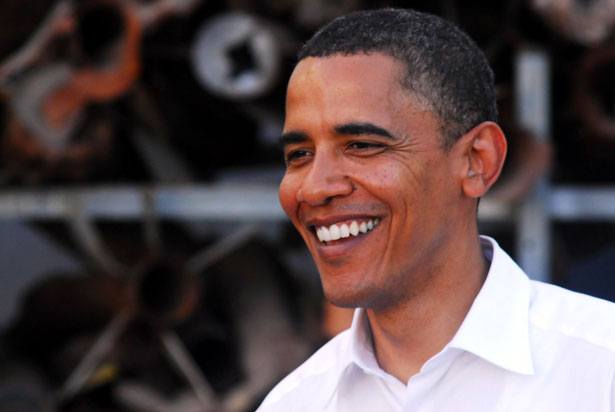Joining a political party
Fancy sticking your oar into some of the UK's most important decision and policy-making processes? If so, join the party.

Obama's campaign got the youth vote - could yours?
What is a political party?
Political parties are organisations of like-minded individuals who seek to gain the power to govern. There are many political parties in the UK, from the main three parliamentary parties, Labour, Conservatives and Liberal Democrats, to the national parties like the the SNP and Plaid Cymru and other smaller but influential parties such as the Green Party, UKIP and many more.
Which party is for me?
No one can tell you which political party to join – that is a decision you make yourself depending on your own views on how the country should be run and what policies should be implemented.
You may already be aware of the general views of political parties from watching the news and reading newspapers, but be aware that the media often give bias representations of parties depending on their own views.
Browsing around a party’s website will help you understand what its aims and achievements are, and whether they’re enough to encourage you to offer them your full support. All political parties have websites on which they explain their ideas and beliefs; they are a great place to look for a general overview of parties and also for more in-depth reading.
Parties often produce literature that outlines what they have achieved and what they plan to do (you’ll probably find your letterbox inundated with leaflets in the lead-up to elections). Also, check out the party’s manifesto, a document produced by each political party prior to an election which outlines everything they plan to do if elected. Most parties publish their manifestoes on their websites.
Can young people join?
Yes – political parties are very keen for young people to get involved and most have youth departments to deal with the views and issues relevant to young people. Some parties have reduced membership fees for younger members, too. For example, Labour offers membership for £1 a year if you’re under 27, while joining the Conservatives will cost you £5 a year (or £25 a year if you are 23 and over), and the Liberal Democrats £6 if you are under 26 or in full-time education.
What does being a member involve?
Joining a party entitles you to certain benefits, including voting for the leader of your party and taking part in decision-making at a local level. You will be able to attend events such as the party conference and local functions, possibly meeting MPs and prominent politicians.
Put the effort in…
As with many things in life, what you get out of an experience will depend on what you put in. To get the most out of your membership you’ll need to invest time and effort.
Joining the party will present you with a range of opportunities. For starters, your local party branch will require a Youth Officer to help represent the views of young people locally. Parties also have national youth organisations which have conferences and committees in the same manner as the main party, allowing young people to get involved with decision-making processes. Meanwhile, getting out onto the streets, delivering leaflets, knocking on doors and talking to members of the public about the party’s policies and activities are also required.
Finally, it’s worth bearing in mind that being involved in a political party is a good way to gain new skills and meet new people. It’s can also make an excellent addition to your CV or UCAS application.
Even if you don’t join a party…
If joining a political party isn’t your thing, don’t forget that you can still get your local MP to help out on the issues that matter to you, from raising funds for a project in your neighbourhood to influencing national and international campaigns.
Next Steps
- Chat about this subject on our Discussion Boards.
By Calvin Jones
Updated on 29-Sep-2015
Photo of Barack Obama by Shutterstock.
No featured article










